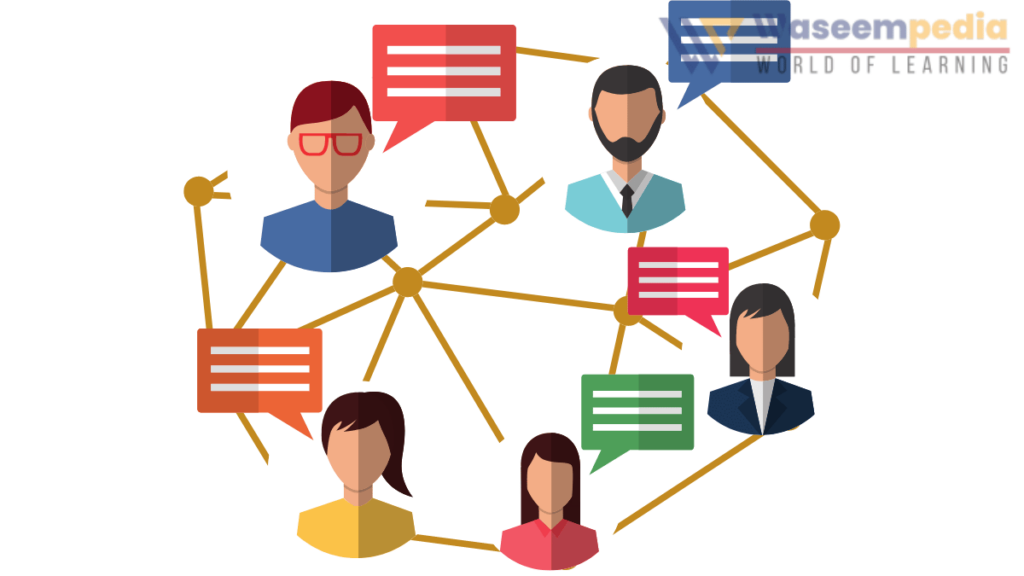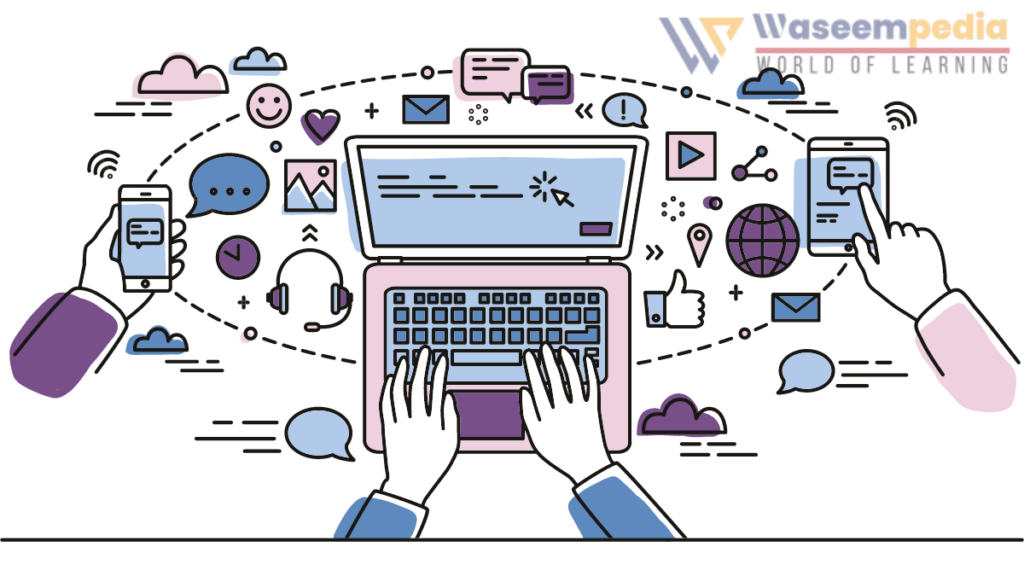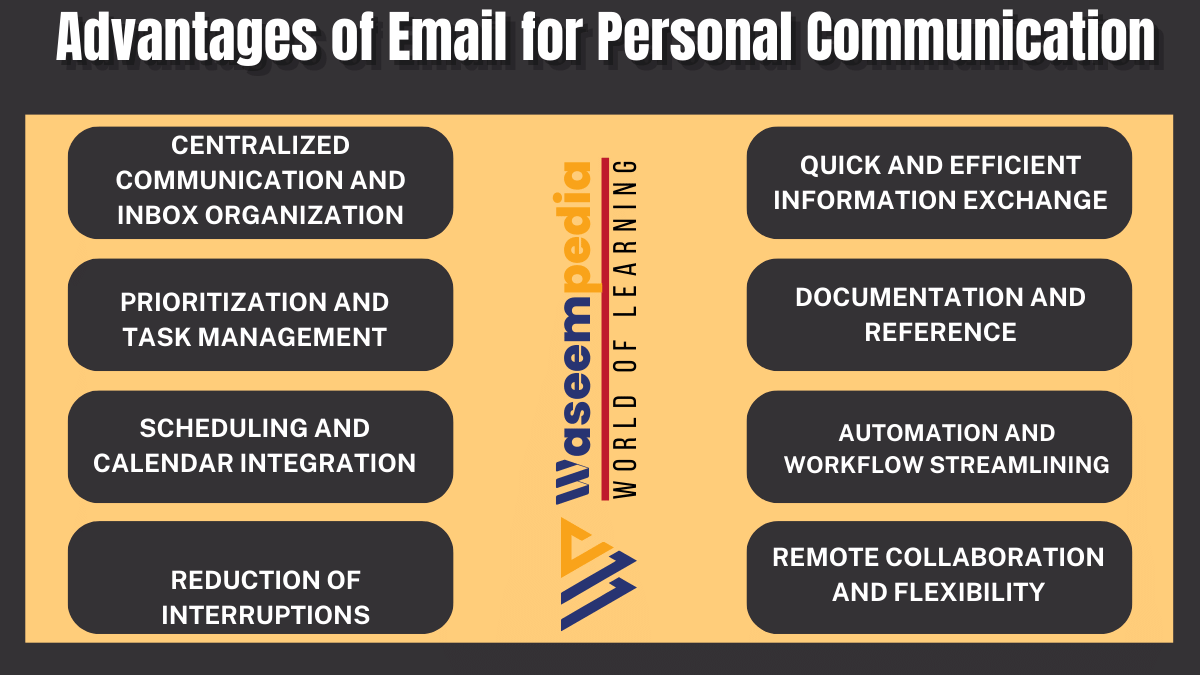While numerous communication platforms exist, email remains a valuable and versatile tool for personal communication. Its asynchronous nature, detailed conversations, long-term archiving, privacy, and accessibility contribute to meaningful connections and nurturing relationships. Email’s convenience, attachment capabilities, customization options, and global reach make it an ideal channel for maintaining personal connections in today’s digital world.
In the digital era, personal communication has evolved significantly, with various messaging apps and social media platforms at our fingertips. However, email remains a widely used and valuable method for personal communication.

Whether it’s staying in touch with loved ones or corresponding with colleagues and acquaintances, email offers distinct advantages. In this article, we will explore the benefits of using email for personal communication and how it enhances connectivity and relationships.
Email has revolutionized personal communication by offering a convenient and versatile platform for connecting with others. It allows individuals to exchange messages, share information, and maintain relationships regardless of distance. While other forms of communication have emerged, email remains a reliable and widely used channel for personal interactions.
Leverage email for networking, lead generation, fundraising, file sharing, and customer retention. Strengthen connections, attract leads, and foster loyalty through targeted and engaging campaigns. Maximize business potential with the power of email communication.
8 Advantages of Email for Personal Communication
8 Advantages of Email for Personal Communication are followings
1. Asynchronous Communication
One of the major advantages of using email for personal communication is its asynchronous nature. Unlike real-time messaging or phone calls, email allows individuals to send and receive messages at their convenience.
This flexibility accommodates different time zones, busy schedules, and varying response times. Participants can reply to emails when they have the time and mental space to compose thoughtful and meaningful responses.

2. Detailed and Thoughtful Conversations
Email enables detailed and thoughtful conversations, as users have the opportunity to carefully compose their responses. Unlike instant messaging, where quick and brief messages are common, email encourages more in-depth discussions.
The format allows for elaboration, reflection, and the ability to address multiple points or questions comprehensively. Email promotes meaningful and substantial exchanges, contributing to deeper connections and understanding.
3. Long-Term Archiving
Email serves as a long-term archive of personal conversations and correspondence. Unlike messages on other platforms that may disappear or get buried in the stream of notifications, email provides a central repository of important communication.
Users can refer back to previous emails to retrieve information, revisit shared memories, or access important attachments. This archival feature preserves personal history and facilitates nostalgia.
4. Privacy and Security
Email platforms prioritize privacy and security, ensuring that personal communication remains confidential. Encryption and authentication protocols safeguard email content and attachments, protecting them from unauthorized access.
Email providers also offer additional security features, such as two-factor authentication and spam filtering, to enhance user privacy and reduce the risk of data breaches.
5. Convenience and Accessibility
Email offers convenience and accessibility, as it can be accessed from various devices, including computers, smartphones, and tablets. Users can conveniently send and receive emails from anywhere with an internet connection.
This accessibility ensures that personal communication is not confined to a specific location or device, enabling continuous connection and interaction.
6. Attachments and File Sharing
Email allows for seamless attachment and file sharing, making it ideal for personal communication that involves sending photos, documents, or other digital files. Users can easily attach files to emails, eliminating the need for separate file-sharing platforms. This simplicity and integration streamline personal communication and make it easier to share meaningful content with others.
7. Customization and Personalization
Email offers customization and personalization options, allowing users to express their unique personalities and preferences. From customizable email signatures to personalized templates and formatting choices, individuals can make their emails reflect their personal style.
This flexibility fosters a sense of individuality and allows for creative expression in personal communication.
8. Global Reach and Language Options
Email transcends geographical boundaries, enabling personal communication across different countries and time zones. It facilitates connections with friends, family, and acquaintances around the world, allowing for continuous communication regardless of distance.
Furthermore, email platforms often support multiple languages, enabling individuals to correspond in their preferred language and ensuring inclusivity in personal communication.
Related FAQ’s
What is the advantage of email in communication?
The advantage of email in communication is its asynchronous nature, allowing individuals to send and receive messages at their convenience.
Is email good communication?
Yes, email is a good form of communication for its convenience, flexibility, and ability to facilitate detailed and thoughtful conversations.
How does email affect communication?
Email affects communication by enabling asynchronous messaging, promoting detailed conversations, providing long-term archiving, prioritizing privacy and security, offering convenience and accessibility, facilitating attachments and file sharing, allowing customization, and enabling global reach with language options.
What are the 10 advantages of email?
Email offers advantages such as asynchronous communication, detailed and thoughtful conversations, long-term archiving, privacy and security, convenience and accessibility, attachments and file sharing, customization and personalization, global reach and language options, speed and efficiency, and easy organization and searchability.
What is Email communication?
Email communication is the exchange of messages, information, and files between individuals or groups using electronic mail (email) as the medium of communication.

